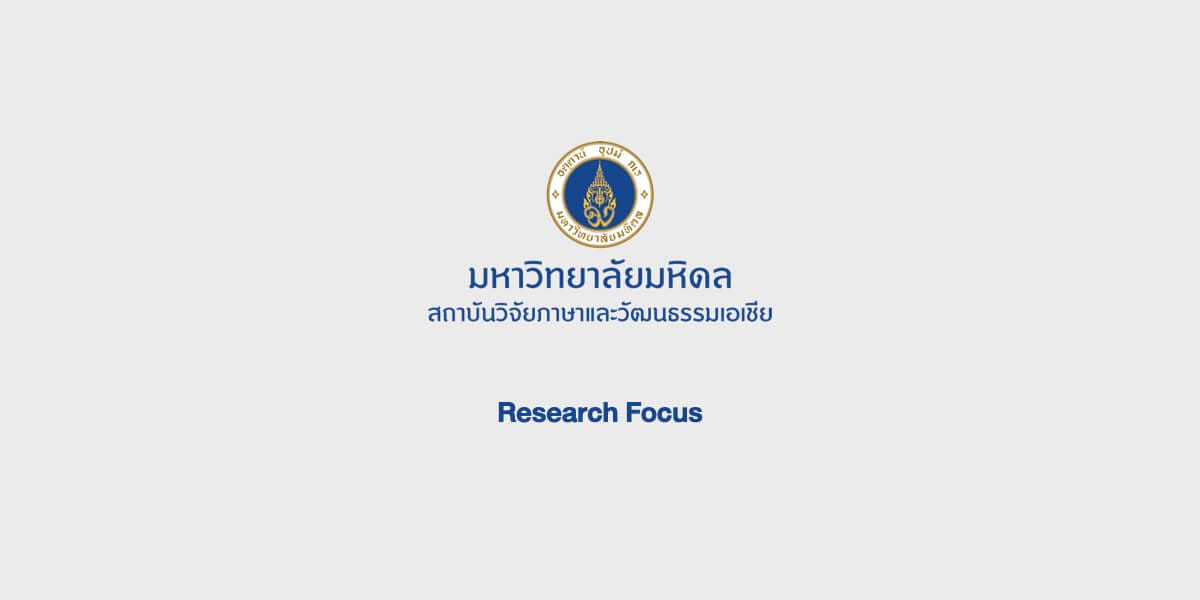
การศึกษาสาเหตุของความเครียดและกลยุทธ์การรับมือของครูระดับมัธยมศึกษาด้วยวิธีวิทยาคิวและการสำรวจโดยใช้คิวป็นฐาน
Head of Project:
Researcher:
–
Duration:
Background and Significance of Research
Teaching is an emotionally demanding profession, requiring educators to manage their own emotions while responding to those of others. Challenges in classroom management, relationships with students, parents, colleagues, and administrators, combined with high workload and role expectations, often lead to stress that can negatively affect teachers’ health, performance, and retention. Causes of teacher stress vary, influenced by work environment, personal characteristics, and coping strategies. Prolonged stress may result in burnout and early career attrition, a trend seen worldwide.
Positive Psychology offers a proactive approach to teacher well-being by fostering positive traits, resilience, and overall effectiveness. The PERMA framework—Positive Emotion, Engagement, Relationships, Meaning, and Accomplishment—provides a holistic lens for sustaining teacher happiness and performance. Although many school well-being initiatives focus on students, teachers’ needs and perspectives are often overlooked, limiting the long-term success of such programs.
This study investigates teacher well-being among Thai educators using Q methodology combined with a survey design to capture both in-depth perspectives and generalizable data. The findings will inform the development of Positive Psychology Interventions (PPIs) tailored to the Thai teaching context, aiming to reduce stress, enhance sustainable happiness, and provide evidence-based recommendations for educational policymakers.
Objectives
The objectives of this study are as follows:
- Identify and describe potential stressors among Thai secondary-level teachers.
- Identify potential coping strategies used by Thai secondary-level teachers in response to different stressors.
Output
Executive Summary
Teacher stress and coping are complex and subjective phenomena that vary across individuals and educational contexts. This study investigated how Thai secondary school teachers experience and cope with stress by employing a mixed-methods approach that combined Q methodology, semi-structured interviews, and Q-based surveys. A total of 72 teachers from six regions across Thailand participated in Q sorting, ranking 36 and 25 statements on forced-distribution grids, followed by interviews that provided deeper insights into their perspectives. Inverted factor analysis revealed five distinct stressor profiles: workload, student performance and participation, professional demands, extra duties with limited support, and expectation. These profiles were subsequently validated through a follow-up survey with 203 teachers, which closely mirrored the Q-sorting results and highlighted emerging issues including administrative overload, unfulfilled teaching goals, challenges arising from educational reforms and technological change, and the subjective nature of stress shaped by teachers’ professional identity and demographic backgrounds.
The study also identified three coping profiles that illustrate the diversity of strategies teachers adopt in managing stress. Recovery-focused copers tended to rely on rest, withdrawal, and recreational activities, which offered short-term relief but were associated with higher stress levels. Awareness-based copers emphasized mindfulness, reflection, and emotional awareness, occasionally supplemented with planning and prioritization, though this approach was perceived as less effective overall. Goal-driven copers, the smallest group, employed problem-focused strategies such as goal-setting, structured planning, and collaboration, and they reported the lowest stress levels and highest coping effectiveness. These findings reinforce the view that stress is not simply a reaction to external pressures but rather a product of how teachers appraise and interpret demands in relation to their coping resources.
The results have important implications for policy and practice. Supporting teacher well-being requires more than generic stress management programs; it calls for differentiated interventions that reflect teachers’ varied coping approaches and professional contexts. Reducing administrative overload, clarifying role boundaries, and ensuring fair task allocation are essential to address systemic stressors. At the same time, professional development should focus on equipping teachers with strategies that balance emotion-focused and problem-focused coping, while also preparing them to adapt constructively to educational reforms and policy changes. Ultimately, this study underscores the importance of recognizing the pluralism of teacher stress and coping, and it offers a framework for designing policies and professional development initiatives that strengthen teacher resilience, safeguard well-being, and enhance educational quality.

